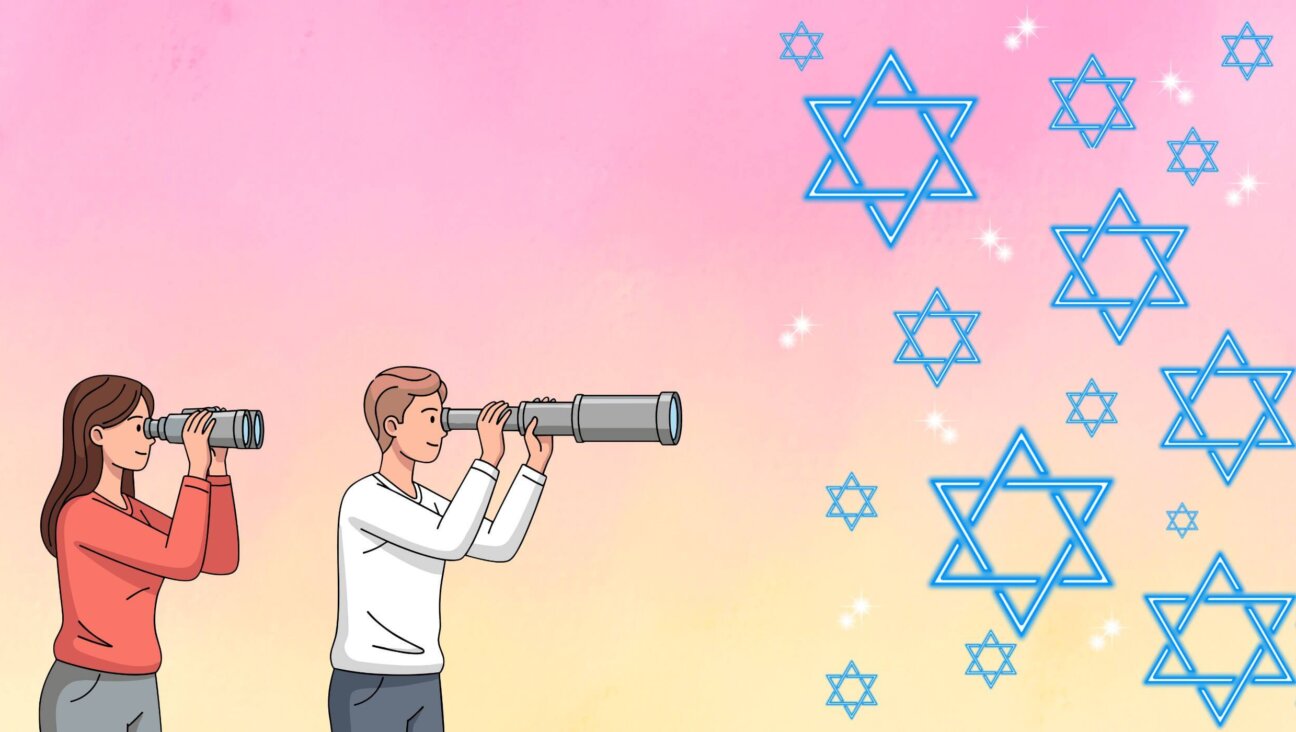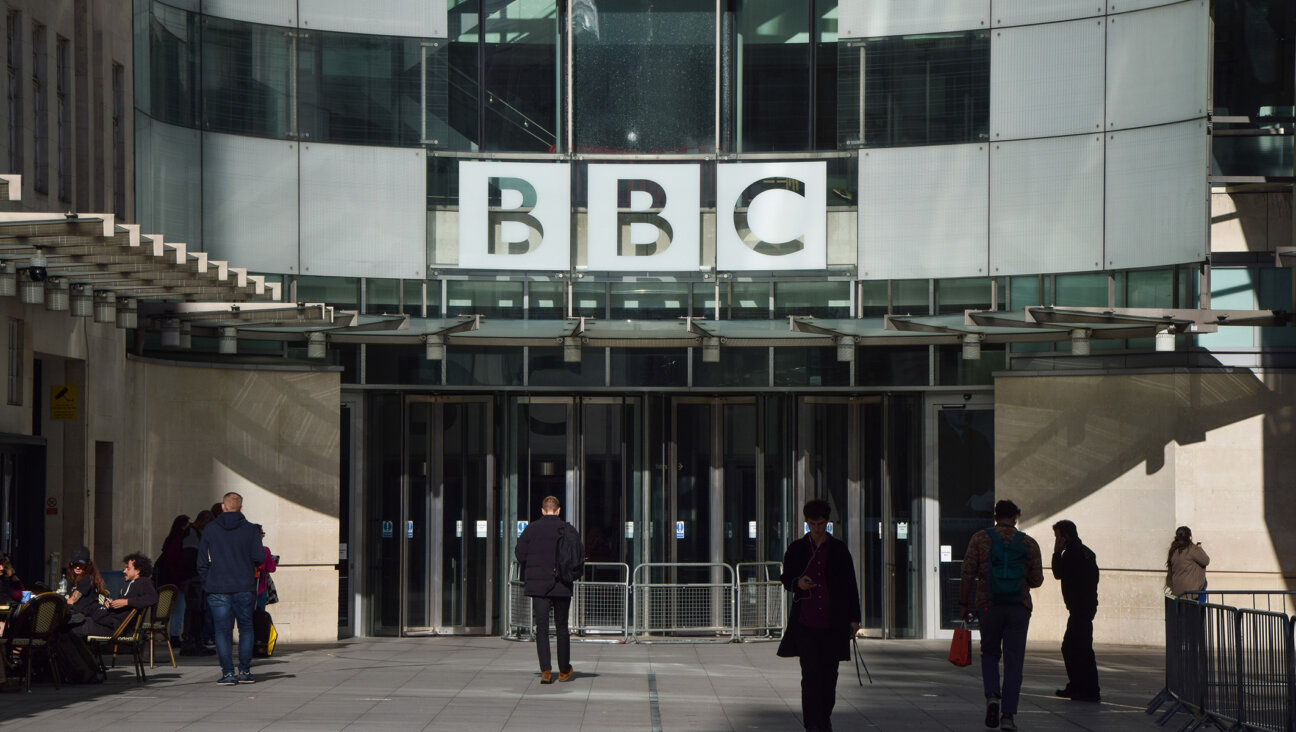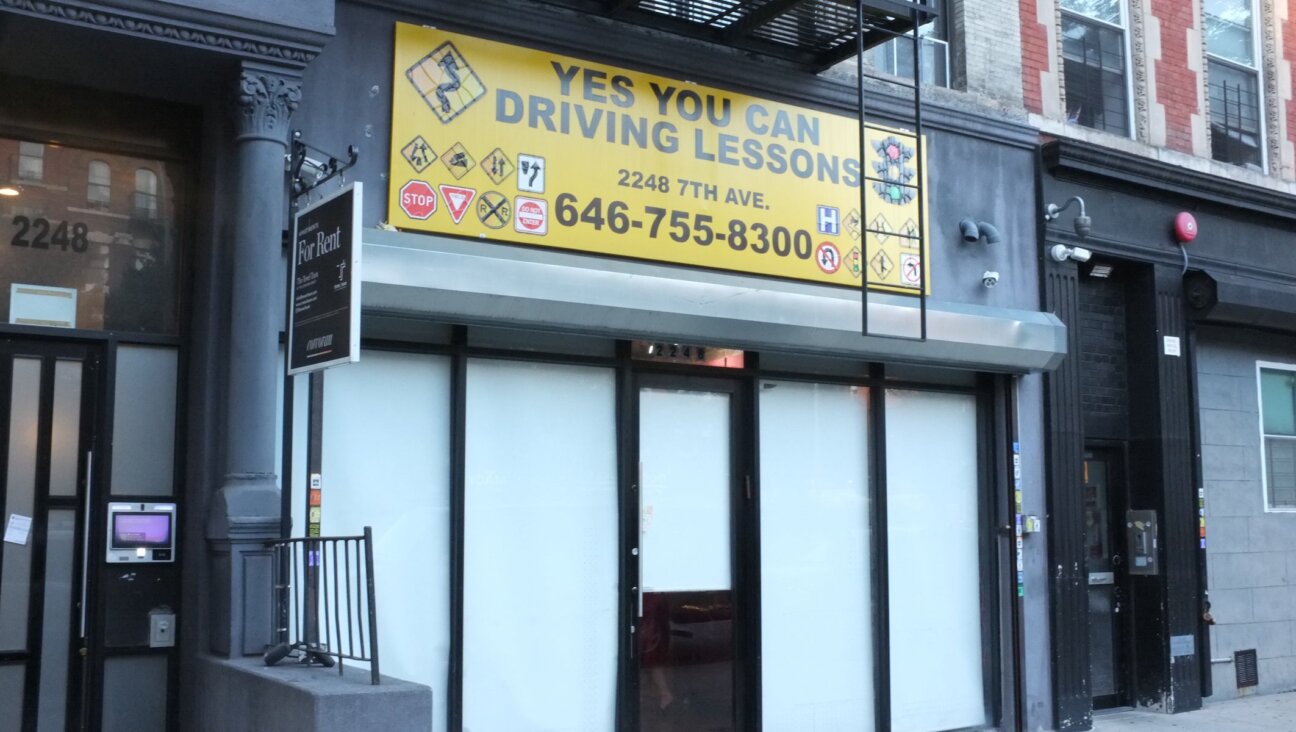How to talk to people who hate Israel
This one question can turn a confrontation into a conversation

Demonstrators rally in support of Palestinians and against Israel in Boston, Massachusetts, on Nov. 12, 2023 Photo by JOSEPH PREZIOSO/AFP via Getty Images
During a recent concert of Latin American music in Los Angeles, one featured singer walked on stage wearing a kaffiyeh, the Palestinian headscarf, and gave an impassioned speech in Spanish ending with “Palestina libre!”
This wasn’t some undergraduate rally in the quad. This was an event where people paid good money and dressed up to see conductor Gustavo Dudamel, the Los Angeles Philharmonic and world famous Latina singers. Still, after the French-Chilean singer Ana Tijoux demanded a cease-fire now and solidarity with the Palestinians, most of the audience applauded, and many leapt to their feet and cheered.
I sat there with four Jewish friends and stayed quiet. I’ve covered enough anti-Israel rallies and interviewed enough Israel critics to know that yelling back or walking out wasn’t going to change anyone’s mind. In my experience, there’s only one effective way to begin to do that. So I stayed and tried to enjoy the rest of the concert.
But let’s face it. From Disney Hall to college campuses to the streets of London, where 300,000 people rallied last Saturday to chant “Free Palestine,” Israel is losing hearts and minds. And after the excitement of Tuesday’s “March for Israel” dissipates, it’s worth asking the question: Will a march change anyone’s mind?
Some of the vitriol is coming from people who were never going to be sympathetic to Israel. Even if Hamas had killed 10 times as many people on Oct. 7, there would still be protesters marching blaming Israel. And even if Israel’s subsequent military operation killed zero civilians, these same people would still be chanting “Genocide!”
I’m not talking about those people. I’m talking about the criticism coming from people we know and love. Your kid in college. The colleague you used to trade recipes with. The people you marched and organized beside to protest the Muslim ban, or after the murder of George Floyd. The in-law who clicked “Like” on some anti-Israel Instagram post. As the war drags on, casualties mount, and the hostages remain captive, talking about Israel becomes even more difficult and freighted — and even more important.
But how can you talk to people who hate Israel, even when they’re people you love? Is there any way Thanksgiving won’t end in a screaming match?
My answer is … a question. When I realize I’m speaking with someone whose views on Israel are very different from my own, I always ask, “What do you want?”
Most arguments about Israel go backward in time at warp speed. Someone mentions the Gaza invasion of 2014 and someone else counters, “What about Oslo?” which then leads to 1948, then the Balfour Declaration, and then the Bible. An argument can go from the Abraham Accords to Abraham in a flash. And we will never agree on the past.
I’m not saying history has no verifiable facts. But even if your opponent finally succumbs to your mastery of the Sykes-Picot Agreement — and that won’t happen — what have you really accomplished? It’s not the past that haunts Israelis and Palestinians; it’s the future.
Those two people, fated to share the same plot of land, are facing the abyss. No matter whose narrative is correct, no matter what happened in 1917, or 1948, or 1967, or 2023, if they can’t come to an agreement about the future, they are doomed.
So, don’t try to argue the past, or the present. Ask: “What do you want? What’s your solution?”
When you ask someone who is anti-Israel what they want for the future, you get three basic responses.
Some will say the not-so-quiet part out loud: They want Israel and its Jews to disappear. It is what I hear when protesters chant, “By any means necessary!” They think terror will drive the Jews out, dead or alive. Mind you, these are the same people who call Israel a violent, fascist, genocidal state. So ask them how, exactly, they see a way to exterminate Israel that leaves the rest of the Middle East intact? Ask them if the Palestinians in northern Gaza think the Hamas way is working. If the person you’re arguing with thinks more killing and violence will solve the problem, feel free to cut the conversation short — but at least you know where they stand.
The second response to “What do you want?” is a negotiated settlement, a two-state solution. For a brief moment in the 1990s, this was how most people answered the question when I asked it. You can ask whoever answers your question this way what each side needs to do to increase the chances of it happening. You can play junior diplomats. You can even feel some hope. But, don’t get your hopes up that anyone will give you this answer — unless you happen to be arguing with Tom Friedman.
The third response is the most common these days: Equal rights for all people between the Mediterranean Sea and the Jordan River. This is the most benign meaning of the chant, “From the river to the sea, Palestine will be free.”
This may be the most threatening of all responses, but don’t be defensive. As a conversation starter, it’s a useful one. Ask: How could you build a peaceful future after so much bloodshed? How would you handle the Jewish and Palestinian Right of Return? Would they still sing, “HaTikva?”
You can have long, constructive conversations with even the fiercest Israel critics by asking, “What do you want?” But the question also works when you meet staunch Israel supporters whose positions you oppose.
If they answer, as an IDF rabbi did last week, “It’s all ours, Gaza and Lebanon,” ask them how exactly Israel can rule over so many people and remain a stable, economically viable democracy? The urge to destroy everyone you perceive as the enemy is understandable after Oct. 7, but my follow-up question to these people is always the same: “Then what?”
Because the one immutable fact of the Israeli-Palestinian conflict is that the day after every battle, every terror act, every act of retribution, the other side is still there. People who don’t have a pragmatic argument for how two people can live together can argue all they want about the past and present. But they will have no future.
And a future is something everyone wants.

















